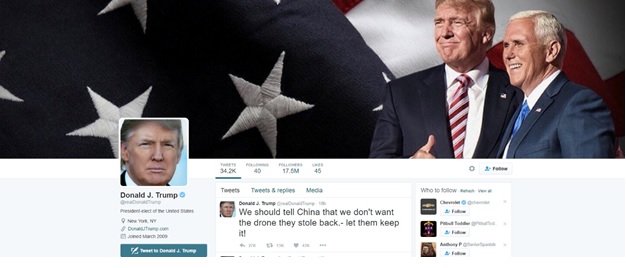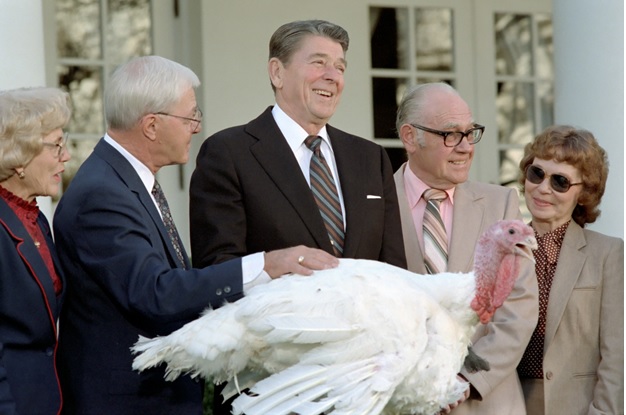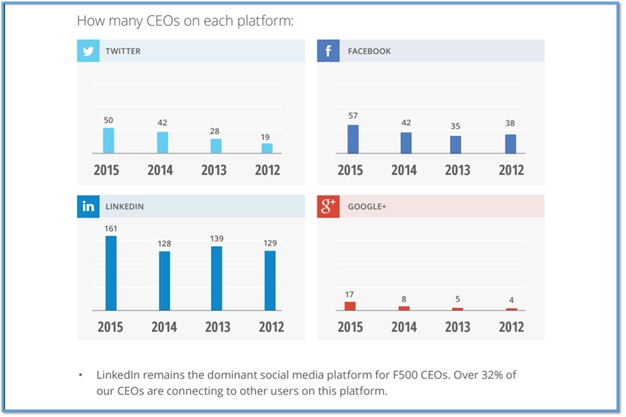
Late last year, Edison Research’s Larry Rosin and I had a nice post-election chat, doing what many of us have been engaged in during the past year or more – trying to make sense out of a rapidly changing American culture, politically and otherwise.
As many of you know, Larry is Mr. Exit Polls, which by the way, did a great job of explaining what actually happened on Election Day. As for those other polls that tried to predict the outcome of the race, well you know that story.
But our discussion about – who else? – Donald Trump led us to recall a blog post I wrote back in September of 2015. In “Trump FM – Doing What We Want,” Way back then, I suggested that The Donald (he’s never referred to that way anymore) was having an unprecedented impact by ignoring protocol, and running his own campaign.
I compared Trump to Howard Stern – and ironically, the two had a connection as the campaign wore on. Long before Trump, Stern earned his reputation by defying conventional wisdom and “the way we’ve always done it.”
Don’t believe me? Well, consider that when Stern was in his heyday in commercial radio, the question on everyone’s mind was “Did you hear what Howard Stern said today?”
For most of 2016, the question has been, “Did you hear what Donald Trump said (or tweeted) today?”
That sense of brashly ignoring traditional mores and standards is what helped propel both these personalities to the status they enjoy today. Stern went from lighting it up on the radio in D.C. and then New York City to becoming a nationally syndicated radio star. From there, Sirius, “America’s Got Talent,” and other accomplishments have made him one of media’s true icons.
For Trump, it’s been a similar rise, from New York real estate magnate to host of a successful reality TV show to the Oval Office.
And that’s why we can expect more of the same in 2017 and beyond. As Stern vilified morning radio’s “zookeepers” and their goofy, predictable bits, it’s very likely Trump will do the same thing during his Presidency. Think about “benchmarks” like the Thanksgiving Turkey Pardon or the Easter Egg Roll. There’s every possibility Trump will dump them, hand them off to Ivanka, or totally reinvent them. But the likelihood of him doing it the same old way is very low.

And that should serve as a reminder to all of us in radio to question why we’re continuing to do some of the same hackneyed, tired bits and events year after year. Perhaps some of them are revenue producers or we’re convinced greatly contribute to our brands. Yet, ignoring the Trump Effect and always doing it the same way, day in and day out, year in and year out is a recipe to get voted out of office – or off the air. Trump answered the needs of many who were tired of the same old thing. For those of you on the radio or programming content, it’s a message that you can’t afford to miss, whether you voted for Trump or not.
That leads us to another tradition – and this time, it’s one that Trump has perfected. His tweeting has been a signature feature of his campaign, and as shocking as it may be, he has continued his Twitter rants, reactions, and commentaries well after November 8th.
Everyone knows what @RealDonaldTrump is all about – whether you’re China, Ford, Boeing, GM, Lockheed, Congress, or even Chuck Jones, the union boss who wrangled with the POTUS-elect over saving those Carrier jobs last month. Trump surrogates and spokespeople may be delivering one message, but his Twitter account is infused with digital sodium pentothal – always revealing his true thoughts and emotions.
Trump uses his Twitter account in much the same way that Stern used his radio show – to stir it up, create a sense of unpredictability, and to even set occasions.
And in the process, Trump may be revolutionizing how executives communicate with their colleagues and employees, as well as their customers – in his case, the American people.
Trump truly enjoys the Twitter platform, and he’s one helluva tweeter. From that 60 Minutes appearance late last year, here are a few of Trump’s most telling Twitter quotes:
“I find (Twitter) tremendous. It’s a modern form of communication. There should be nothing we should be ashamed of.”
“It’s a great form of communication. It does get the word out.”
Trump has mastered the platform, raising the question whether he’ll change the way executives communicate with their customers, financial backers, and staffs? In fact, he’s a rarity, because most captains of industry are notably silent on social media. Back in 2015, CEO.com produced a “Social CEO Report,” finding that six in ten Fortune 500 CEOs don’t have a social media account – period. And overall, only 10% of these F500 head honchos were even on Twitter:

It raises the question why more CEOs – in and out of broadcasting – feel they don’t have permission to take their message to social media. A boss’ active Twitter account gives employees a chance to better understand what the corner office is thinking – in real-time – not just during a market visit or in a quarterly newsletter.
It also provides the company’s chieftain an opportunity to publicly praise employees and stations that do a great job – whether it’s ratings, revenue, community involvement, anniversaries, or other accomplishments. It’s the chance to comment on anything happening in the state of radio, broadcasting, or media – whether it’s a reaction to the FCC, Nielsen, the Radio Music Licensing Committee, or anything else.
And it’s important to tweet with regularity – not just after a weather disaster or community tragedy. A key reason why Trump’s tweets are so consistently read, debated, and discussed is the consistency of his activity. Not a day goes by (or even a few hours) without him reacting, opining, prodding, or provoking on Twitter.
In short, Twitter specifically and social media in general provide CEOs with a powerful megaphone. It doesn’t have to be a bully pulpit, a place to pick fights, or vacation photos. But it can be a communications conduit that can have impact while providing everyone – investors, employees, listeners, and advertisers – with a great sense of what the company believes in. It gives CEO a voice.
How Trump’s tweeting patterns will change on Friday, January 20th remain to be seen.
I’m betting he’ll be tweeting at the same rate, but maybe then he’ll be known as @POTUS.
- What To Do If Your Radio Station Goes Through A Midlife Crisis - April 25, 2025
- A 2020 Lesson?It Could All Be Gone In A Flash - April 24, 2025
- How AI Can Give Radio Personalities More…PERSONALITY - April 23, 2025




Hey Fred,
This was a fantastic article, and it makes me think deeper about twitter, so thank you!
Gene & Julie
Hope you’re both doing well. Thanks for commenting & happy new year!
Outstanding Article! Back in ’08, I thought Twitter was a Disney movie (almost became one, last year). Now, it’s the direct line of instant communication. Can we expect All Channel Overnight Nielsen Tweets, this year? Clark, Boston. http://www.broadcastideas.com
Thanks, Clark. And we don’t need Nielsen to measure the power of Twitter. It’s playing out every day.
Reality Check. Twitter is used by about 15% of people. Maybe 5-10% on any given day. Trump’s tweets aren’t successful because of Twitter. They are influential ONLY because mainstream media pick up and print and broadcast every single one of them. Without mainstream media, Trump’s tweets might reach a million people here or there, but without the resounding amplification of mass media, no one would know.
When was the last time the WSJ, the NYT, NBC, ABC, CBS and even Fox News relayed or repeated a tweet by Ryan Seacrest — a person who has more Twitter followers than Trump. Answer: never.
So before we start going ga-ga over the “power” of Twitter, please remember that Trump is not the standard. He is the exception.
Please adjust your expectations of how well Twitter can help voice your opinions. It is like shouting into the wind or whispering in a crowded room. Unless you are fortunate enough to attract mass media coverage of your tweet, or histrionics by one of your Twitter followers who starts an online outrage, you’re not going to make much of a difference.
MBG, we are typically on the same page, but not this time. Trump’s tweets are amplified by the media – no doubt about it. But they still have impact. And that was the point I was trying to make. It’s not about whether you support Trump or despise him. The takeaway is how well he uses social media, in this case, Twitter. Several weeks ago, we lauded Dan Rather’s use of Facebook – same deal.
There’s not a sporting event, an awards program, or any other cultural or social event that isn’t using Twitter. Unlike Facebook, its connected tissue is concentrated more in the media and business worlds. For broadcast radio execs, that’s a space worth understanding.
When it comes to social media, it’s not about reach – it’s about impact. And that’s why CEOs would be well-served to immerse themselves in the space.
Thanks for taking the time to comment, and let’s see if others chime in.
“No one in this world, so far as I know—and I have researched the records for years, and employed agents to help me—has ever lost money by underestimating the intelligence of the great masses of the plain people. Nor has anyone ever lost public office thereby.”
HL Mencken
Its not the medium, its the message.
And isn’t that the real story of 2016? Thanks for the comment, Bob.